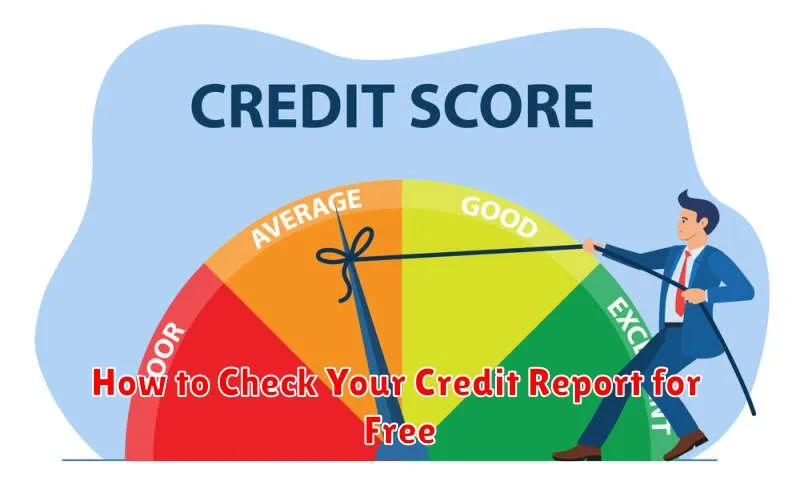Understanding your credit score is crucial for achieving your financial goals. A strong credit score unlocks access to lower interest rates on loans like mortgages and auto loans, allowing you to save thousands of dollars over the life of the loan. This article will delve into the intricacies of credit scoring, explaining the factors that influence your score, and providing practical strategies to improve your credit and achieve better financial health. Learn how to build credit, monitor your credit report, and dispute any inaccuracies to secure a brighter financial future.
What is a Credit Score and Why It Matters

A credit score is a three-digit number that represents your creditworthiness. Lenders use it to assess the risk of lending you money. It’s calculated based on information from your credit report, which includes your payment history, amounts owed, length of credit history, new credit, and credit mix.
Your credit score significantly impacts your ability to obtain loans, credit cards, and even rent an apartment. A higher score means you’re seen as a lower risk, leading to better interest rates and more favorable loan terms. Conversely, a low score can result in higher interest rates, loan denials, or even higher insurance premiums. In short, a good credit score is crucial for your financial health and future opportunities.
Understanding your credit score and actively working to improve it is an important step towards achieving your financial goals. It empowers you to make informed decisions regarding credit and build a strong financial foundation.
Factors That Affect Your Credit Score
Your credit score, a crucial number impacting your financial life, is influenced by several key factors. Understanding these factors is essential for improving your score.
Payment History is the most significant factor, accounting for 35% of your score. Consistent on-time payments demonstrate responsible credit management. Late or missed payments severely damage your score.
Amounts Owed (30%) refers to your credit utilization ratio – the percentage of available credit you’re using. Keeping this ratio low (ideally below 30%) signifies responsible borrowing and positively impacts your score.
Length of Credit History (15%) considers the age of your oldest and newest accounts. A longer history of responsible credit use generally results in a higher score. Avoid opening many new accounts in a short period.
Credit Mix (10%) reflects the variety of credit accounts you hold (e.g., credit cards, installment loans). A diverse mix suggests a well-rounded approach to credit management, though it’s less impactful than other factors.
New Credit (10%) considers recent applications for credit. Multiple applications in a short time can lower your score, as it indicates increased risk to lenders. Carefully consider your need for new credit.
How to Check Your Credit Report for Free

You are entitled to a free credit report from each of the three major credit bureaus – Equifax, Experian, and TransUnion – once a year through AnnualCreditReport.com. This is your right under the Fair Credit Reporting Act.
Avoid websites that claim to offer free credit scores or reports; many are scams. Only use the official website mentioned above to access your free annual report.
The process is straightforward. You’ll need to provide some personal information to verify your identity. Once verified, you can download or view your credit report online. Review your report carefully for any inaccuracies or errors.
While the annual report is free, credit scores are generally sold separately. However, some credit card companies or financial institutions may offer free credit score access as a perk to their customers.
Tips to Improve Your Score Quickly
Improving your credit score quickly requires focused effort. Prioritize paying down high-utilization credit cards; keeping your credit utilization below 30% is crucial.
Ensure you’re making all payments on time. Even one missed payment can significantly impact your score. Set up automatic payments to avoid late fees and negative reporting.
Avoid applying for multiple new credit accounts in a short period. Each application results in a hard inquiry, which can temporarily lower your score.
Dispute any inaccurate information on your credit report. Errors can negatively affect your score, and correcting them can lead to a quick improvement.
Consider using a credit monitoring service. These services can alert you to potential problems and help you track your progress towards a better score.
The Impact of Late Payments and Credit Utilization
Your credit score is significantly impacted by two key factors: late payments and credit utilization. Late payments, even one or two, can severely damage your score, as they demonstrate a lack of reliability in fulfilling financial obligations. The impact is felt more acutely with repeated late payments. Credit bureaus view this as a high-risk indicator.
Credit utilization refers to the amount of credit you’re using compared to your total available credit. A high credit utilization ratio (e.g., using 80% or more of your available credit) signals to lenders that you may be overextended financially, resulting in a lower credit score. Keeping your credit utilization below 30% is generally recommended for maintaining a strong credit score.
Addressing these two factors is crucial for improving your creditworthiness. Establishing a system for on-time payments is paramount. Similarly, actively managing your credit utilization by paying down balances and avoiding opening numerous new accounts simultaneously will improve your credit profile over time.
How to Build Credit from Scratch
Building credit from scratch requires a strategic approach. The first step is to obtain a secured credit card. This type of card requires a security deposit that acts as your credit limit, minimizing the lender’s risk.
Next, consistently make on-time payments. Even small, regular payments demonstrate responsible credit behavior to lenders. Aim for paying your balance in full each month to avoid interest charges.
Gradually, consider applying for a credit-builder loan. These loans are designed specifically for individuals with limited or no credit history. Responsible repayment strengthens your credit profile.
Finally, monitor your credit report regularly. You can obtain free reports annually from each of the three major credit bureaus (Equifax, Experian, and TransUnion). Reviewing your report helps identify and address any potential errors.
Patience and consistency are key. Building a strong credit history takes time, but responsible credit management will yield positive results.
Dealing with Credit Report Errors

Inaccurate information on your credit report can significantly harm your credit score. Addressing these errors promptly is crucial.
First, obtain your free credit reports from AnnualCreditReport.com. Carefully review each report from all three major credit bureaus (Equifax, Experian, and TransUnion) for any discrepancies.
If you find errors, dispute them formally with the respective credit bureau. Use the dispute process outlined on their website or by mail, providing documentation to support your claim (e.g., copies of paid bills, court documents).
Keep detailed records of your dispute, including dates, correspondence, and any follow-up actions. The credit bureau is legally obligated to investigate and respond within a reasonable timeframe. They will either correct the error or provide a reason for not doing so.
If the bureau fails to resolve the issue, or you disagree with their response, you can contact a consumer protection agency or consider legal action. Persistent errors can severely impact your financial life, so persistence in correcting them is key.
Maintaining a Good Score Long-Term
Maintaining a good credit score long-term requires consistent effort and responsible financial habits. The key is to establish and adhere to a disciplined approach to credit management.
Pay your bills on time, every time. This is the single most important factor influencing your credit score. Late payments, even one, can significantly impact your score. Set up automatic payments or reminders to avoid late fees and negative reporting.
Keep your credit utilization low. This refers to the amount of credit you’re using compared to your total available credit. Aim to keep your utilization below 30%, ideally much lower. Using less than 10% is best.
Avoid opening many new accounts in a short period. Each new credit application results in a hard inquiry on your credit report, which can temporarily lower your score. Only apply for credit when truly necessary.
Maintain a healthy mix of credit. Having a variety of credit accounts (e.g., credit cards, installment loans) demonstrates responsible credit management, potentially boosting your score.
Monitor your credit reports regularly. Review your reports from all three major credit bureaus (Equifax, Experian, and TransUnion) for errors and unauthorized activity. Dispute any inaccuracies promptly.
By following these practices consistently, you can cultivate a strong and enduring credit history, unlocking various financial benefits in the long run.

